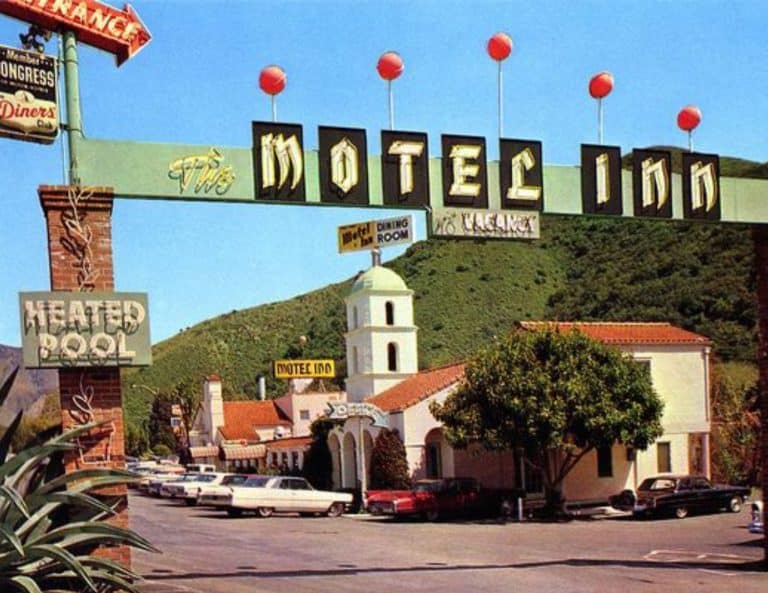If you’re short on time, here’s a quick answer to your question: If you don’t check out of a hotel on time, you may incur additional charges and penalties.
Checking out of a hotel on time is an essential part of any traveler’s experience. However, sometimes circumstances may arise that prevent you from leaving the hotel at the designated check-out time.
In this article, we will explore the potential consequences of not checking out on time and provide some tips on how to avoid any unwanted charges or penalties.
Understanding Hotel Check-Out Policies
When staying at a hotel, it is important to be aware of the check-out policies to avoid any unnecessary charges or inconveniences. By understanding the standard check-out time, late check-out options, and early check-out procedures, you can have a smooth and hassle-free departure from the hotel.
Standard Check-Out Time
The standard check-out time at most hotels is usually around 11:00 AM or 12:00 PM. This allows the hotel staff enough time to prepare the room for the next guest. It is essential to respect this time to avoid any additional charges or penalties. If you are unsure about the check-out time, you can always check with the hotel reception or refer to the information provided in your room.
Late Check-Out Options
If you find yourself needing a little extra time before leaving the hotel, many establishments offer late check-out options. This allows you to extend your stay past the standard check-out time for an additional fee. Late check-out can be a convenient option if you have a late flight or simply want to sleep in a bit longer. However, it is important to note that availability may be limited, especially during peak travel seasons. It is advisable to request a late check-out in advance to secure your desired time. Remember, failing to check out on time without arranging a late check-out can result in additional charges.
Early Check-Out
In some cases, you may need to check out of a hotel earlier than the standard check-out time. Whether it’s due to an early morning flight or a change in your travel plans, it is essential to inform the hotel staff in advance. By doing so, they can prepare your bill, arrange for any transportation if needed, and ensure a smooth departure. Keep in mind that some hotels may have an early check-out fee if you depart before the standard time. It is always a good idea to check with the hotel reception about their policies regarding early check-outs.
Checking out of a hotel on time helps maintain a good relationship with the establishment and ensures a positive experience for both you and future guests. Remember to familiarize yourself with the hotel’s check-out policies to avoid any surprises during your stay. Enjoy your trip and check out with ease!
Possible Consequences of Not Checking Out on Time
Additional Charges
One of the possible consequences of not checking out of a hotel on time is the incurrence of additional charges. Hotels typically have strict check-out times to ensure that they have enough time to clean and prepare the room for the next guest. If you overstay your check-out time, the hotel may charge you for an extra night or a late check-out fee. These charges can vary depending on the hotel’s policies and can be quite expensive. So, it’s always a good idea to check the check-out time in advance and plan your departure accordingly to avoid incurring any additional expenses.
Loss of Deposit
Another consequence of not checking out on time is the potential loss of your deposit. Many hotels require guests to provide a deposit at the time of check-in to cover any potential damages to the room or any unpaid expenses. If you fail to check out on time, the hotel may consider it a breach of their policies and withhold your deposit as a penalty. This can be frustrating as you may lose a significant amount of money that could have been used for other purposes. Therefore, it’s important to adhere to the hotel’s check-out time to avoid such financial loss.
Impact on Future Bookings
Not checking out on time can also have an impact on your future bookings with the hotel or other establishments within the same chain. Hotels keep track of guest behavior, and if you repeatedly fail to check out on time, it may reflect poorly on your reputation as a guest. This can result in difficulties in making future reservations or even being denied accommodation altogether. Hotels value punctuality and adherence to their policies, so it’s essential to be mindful of the check-out time to maintain a good relationship with the hotel and ensure a smooth booking process in the future.
Remember, checking out on time is not only considerate towards the hotel staff and other guests, but it also helps you avoid any unnecessary financial and reputational consequences. So, be sure to set an alarm, pack your bags, and bid farewell to the hotel before the designated check-out time to make your departure hassle-free!
Tips to Avoid Overstaying
Communicate with the Hotel
One of the easiest ways to avoid overstaying at a hotel is to communicate with the hotel staff. If you know ahead of time that you may need a late check-out, it’s best to inform the hotel in advance. Most hotels are willing to accommodate reasonable requests, especially if they are notified in advance. You can simply call the front desk and ask if a late check-out is possible. Remember to be polite and provide a valid reason for your request. It’s always better to ask than to assume!
Plan Ahead
To avoid overstaying, it’s crucial to plan your trip and schedule your activities accordingly. Take into consideration the check-out time when planning your departure. If you have a late flight or a long drive ahead, it might be a good idea to request a late check-out during the booking process. By planning ahead, you can avoid any unnecessary stress or extra charges associated with overstaying.
Use Hotel Apps
In this digital age, many hotels have their own apps that allow guests to manage their bookings and check-out times. These apps often provide convenient features such as the ability to request a late check-out or extend your stay with just a few taps on your smartphone. Some hotel apps even offer real-time updates and notifications, ensuring that you stay informed and avoid overstaying. If your hotel has an app, it’s worth downloading and using it to make your stay more convenient.
Remember, overstaying at a hotel can lead to additional charges and inconvenience for both you and the hotel staff. By following these tips and being proactive in your communication, you can avoid any issues and enjoy a smooth check-out process.
Alternatives to Traditional Hotels
While traditional hotels are the most common choice for travelers, there are several alternative options that offer unique experiences and often at a lower cost. Here are three popular alternatives to traditional hotels:
Vacation Rentals
Vacation rentals have become increasingly popular in recent years, providing travelers with the opportunity to stay in a fully furnished home or apartment. Websites like Airbnb, VRBO, and HomeAway offer a wide range of options, from cozy cabins in the mountains to luxurious beachfront villas. One of the advantages of vacation rentals is the ability to have more space and privacy compared to a hotel room. Additionally, vacation rentals often come equipped with a kitchen, allowing guests to save money by cooking their meals instead of eating out for every meal.
Extended Stay Hotels
Extended stay hotels cater to travelers who are looking for accommodations for a longer period, typically a week or more. These hotels offer amenities similar to traditional hotels but with the added benefit of a kitchenette or full kitchen. This allows guests to have the convenience of preparing their meals, making extended stay hotels an excellent choice for those who prefer a more home-like experience during their travels. Extended stay hotels also often offer discounted rates for longer stays, making them cost-effective for travelers on an extended trip.
Hostels
Hostels are a popular choice for budget-conscious travelers, particularly among backpackers and solo travelers. These accommodations offer shared dormitory-style rooms with bunk beds, as well as private rooms for those who prefer more privacy. Hostels provide a social atmosphere where travelers can meet and interact with other like-minded individuals from around the world. In addition to being affordable, hostels often organize group activities and tours, making them an excellent option for those seeking a more communal and adventurous travel experience.
When considering alternatives to traditional hotels, it’s important to research and compare the options available to find the best fit for your travel needs and preferences. Each alternative offers its own unique benefits, from the comfort and privacy of a vacation rental to the cost-effectiveness and social atmosphere of a hostel.
Conclusion
In conclusion, it is important to abide by the check-out time of a hotel to avoid any unnecessary charges or penalties. Late check-outs may result in additional fees, loss of deposit, or even impact your future bookings with the hotel. To avoid these consequences, make sure to communicate with the hotel if you anticipate a late check-out or plan ahead to ensure a smooth departure. Additionally, considering alternative accommodation options such as vacation rentals, extended stay hotels, or hostels can provide more flexibility in terms of check-out times. By being mindful of these factors, you can enjoy a hassle-free hotel experience and make the most of your travel.






